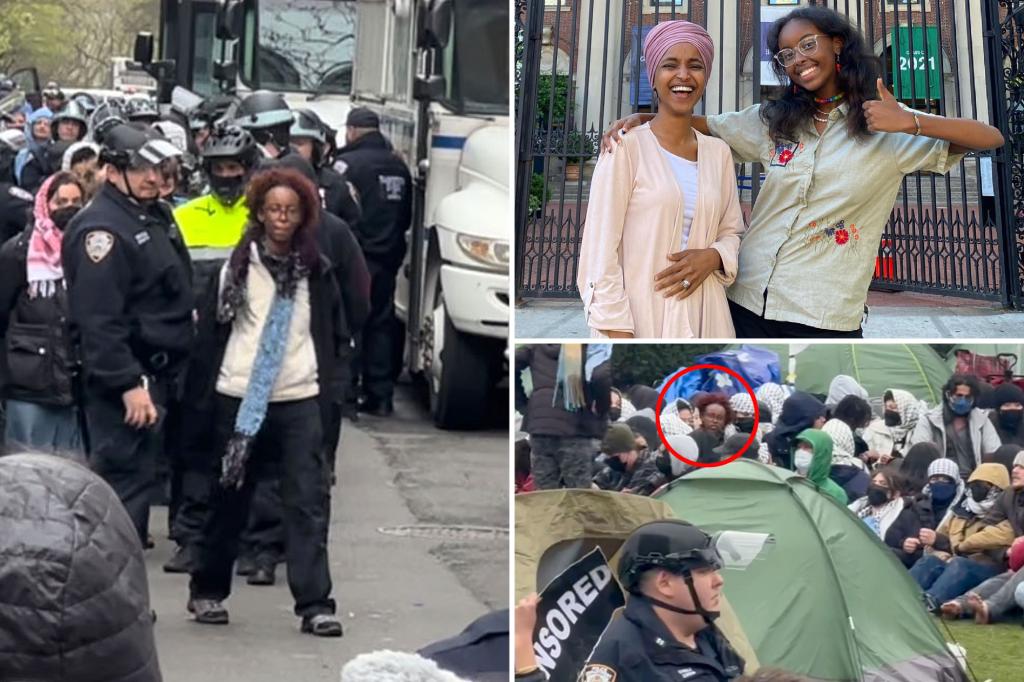Isra Hirsi, the daughter of Congresswoman Ilhan Omar (D-Minn.), was one of the protesters arrested at an anti-Israel protest at Columbia University. The 21-year-old Barnard College junior was seen in a video with her arms behind her back as NYPD officers put her in cuffs. Prior to her arrest, Hirsi had announced that she was suspended from Barnard College because of her participation in the protest, stating that she was standing in solidarity with Palestinians facing genocide. She mentioned that she had never been reprimanded or received any disciplinary warnings in her three years at Barnard.
Demonstrators had set up a makeshift tent city on Columbia University’s Morningside Campus, similar to the Occupy Wall Street protests in 2011. However, the protesters were swiftly dealt with this time. Columbia University President Minouche Shafik called in the NYPD to break down the encampment on Thursday afternoon. Bronx and Westchester Rep. Jamaal Bowman weighed in on the controversy, accusing Barnard of engaging in “political reprisals” by suspending Isra Hirsi. He questioned the school’s commitment to free academic expression and criticized their actions as being politically motivated.
These events come in the context of heightened tensions surrounding the Israeli-Palestinian conflict. The protests were aimed at raising awareness of the situation and advocating for Palestinian rights. Isra Hirsi’s involvement in the demonstrations resulted in her suspension from Barnard College, which sparked criticism from various individuals, including politicians like Rep. Bowman. The rapid response from Columbia University to break down the protest encampment reflects the administration’s stance on the matter.
The actions taken by Columbia University and Barnard College in response to the anti-Israel protests have raised questions about freedom of speech and expression on university campuses. Critics argue that students should be able to peacefully protest and express their views without facing disciplinary action. Politicians like Rep. Bowman have called out the institutions for what they see as censorship and political reprisals. The situation has highlighted the challenges of balancing academic freedom and the right to protest with maintaining order on campus.
Isra Hirsi’s arrest and suspension have drawn attention to her role as an activist and organizer for causes she is passionate about. Her involvement in the Palestinian solidarity movement has put her in the spotlight, both for her activism and the repercussions she faced as a result. The incident has sparked debates about the appropriate response to student-led protests on university campuses and the role of educational institutions in facilitating open dialogue and freedom of expression.
Overall, the events at Columbia University and Barnard College involving Isra Hirsi’s suspension and arrest at an anti-Israel protest have brought to the forefront important discussions about political activism, freedom of speech, and academic freedom. The reactions from various stakeholders, including politicians, activists, and educators, reflect the complex and contentious nature of addressing issues related to the Israeli-Palestinian conflict. Moving forward, these incidents may lead to further debates and actions regarding student protests, disciplinary measures, and the role of universities in fostering inclusive and diverse viewpoints.


